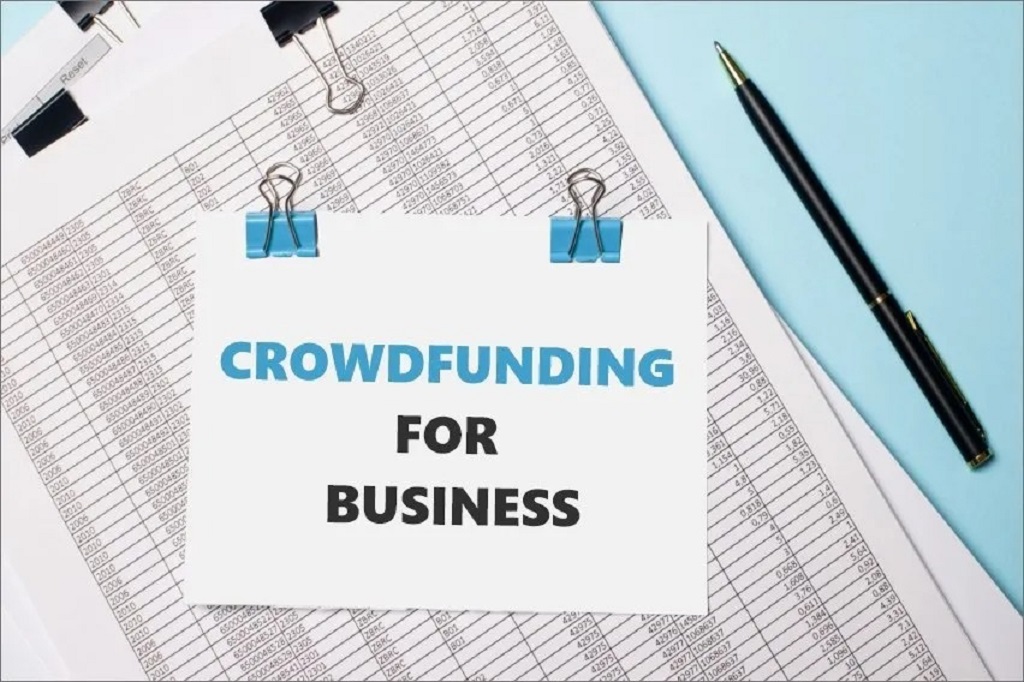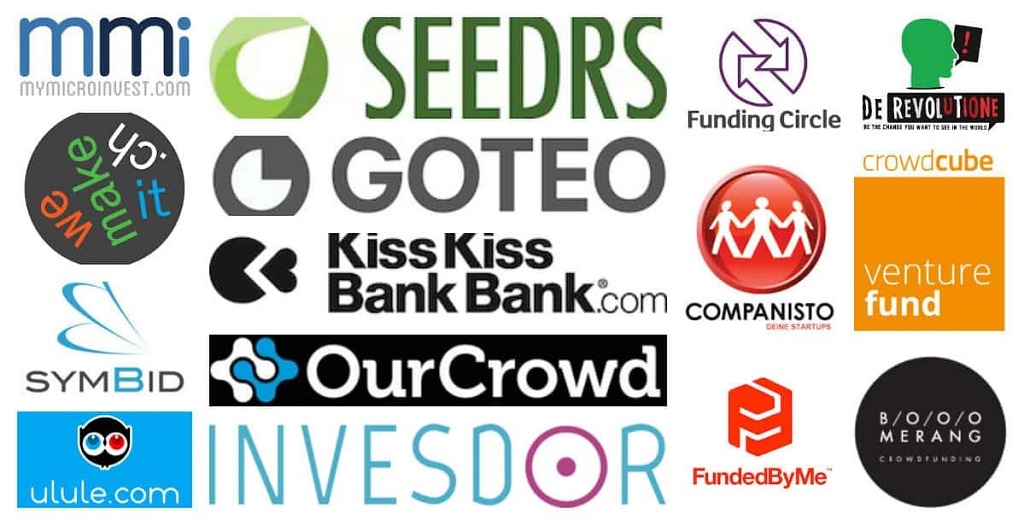
Top 15 Crowdfunding Sites for Early-Stage Startups in 2025
Finding the right funding for your early-stage startup can be challenging in today’s competitive market. Traditional bank loans often require extensive credit histories and collateral that new businesses simply don’t have. Fortunately, crowdfunding has emerged as a viable alternative financing solution. Companies like Carryback Financing specialize in helping entrepreneurs navigate these alternative funding landscapes. This comprehensive guide explores the most effective crowdfunding platforms available to startups in 2025.
Crowdfunding allows entrepreneurs to raise capital from a large number of people who each contribute smaller amounts. This approach democratizes startup funding and gives founders access to resources they might not find through traditional channels. However, choosing the right platform can make the difference between a successful campaign and a failed one. The top 15 crowdfunding sites for early-stage startups offer different features, fee structures, and target audiences.
Understanding which platform aligns with your business model is crucial for campaign success. Additionally, each platform has unique requirements and approval processes that entrepreneurs must navigate carefully.
What Makes a Great Crowdfunding Platform for Startups

Several key factors determine whether a crowdfunding platform suits early-stage startups. First, the fee structure significantly impacts how much money you actually receive from your campaign. Most platforms charge between 3% to 8% of total funds raised, plus payment processing fees.
Second, the platform’s audience and reach matter tremendously. Some platforms attract tech-savvy backers, while others appeal to consumers interested in innovative products. Therefore, matching your startup’s target market with the platform’s user base increases your chances of success.
Third, the level of support and resources provided varies widely. Some platforms offer marketing assistance, campaign consulting, and educational materials. However, others simply provide the technical infrastructure for hosting your campaign.
Reward-Based Crowdfunding Platforms
Kickstarter
Kickstarter remains one of the most recognizable crowdfunding platforms globally. The platform focuses exclusively on creative projects and innovative products. Consequently, it attracts backers who are genuinely interested in supporting new ideas.
The platform uses an all-or-nothing funding model. This means you only receive funds if you reach your full funding goal. Additionally, Kickstarter charges a 5% platform fee plus payment processing fees.
Indiegogo
Indiegogo offers more flexibility than many competitors. The platform allows both all-or-nothing and flexible funding options. Furthermore, it accepts a wider variety of project types, including personal causes and charitable campaigns.
The fee structure includes a 5% platform fee for successful campaigns. However, flexible funding campaigns that don’t reach their goals pay higher fees. Moreover, Indiegogo provides various promotional tools and marketing services.
GoFundMe
While primarily known for personal fundraising, GoFundMe has expanded to support small businesses and startups. The platform doesn’t charge platform fees, only payment processing fees of 2.9% plus 30 cents per transaction.
However, GoFundMe works best for businesses with compelling personal stories or community connections. Therefore, it may not suit all startup types equally well.
Equity-Based Crowdfunding Platforms
SeedInvest
SeedInvest focuses on equity crowdfunding for startups seeking substantial funding rounds. The platform targets accredited investors and institutions rather than individual consumers. Consequently, it’s suitable for startups ready for serious investment discussions.
The platform charges companies a success fee of 7.5% of funds raised. Additionally, SeedInvest provides due diligence services and investor relations support.
StartEngine
StartEngine democratizes equity investing by allowing non-accredited investors to participate. This approach significantly expands the potential investor pool for startups. Furthermore, the platform handles most regulatory compliance requirements.
The fee structure includes a 6% to 8% success fee depending on the funding amount. Moreover, StartEngine offers additional services like marketing support and investor communications.
Republic
Republic combines equity crowdfunding with other investment opportunities. The platform allows both accredited and non-accredited investors to participate in startup funding rounds. Additionally, it offers crypto and real estate investment options.
Republic charges a success fee ranging from 6% to 8% of funds raised. However, the platform provides extensive marketing support and regulatory guidance.
Specialized Industry Platforms
EquityNet
EquityNet serves as a comprehensive business funding network. The platform connects entrepreneurs with various funding sources, including angel investors, venture capitalists, and crowdfunding opportunities. Therefore, it offers multiple pathways to funding.
The platform charges membership fees rather than success-based commissions. Additionally, EquityNet provides business planning tools and investor matching services.
Fundrazr
Fundrazr integrates social media marketing directly into the crowdfunding process. This approach helps campaigns reach broader audiences through viral sharing mechanisms. Furthermore, the platform supports both donation-based and reward-based campaigns.
The fee structure includes a 5% platform fee plus payment processing costs. Moreover, Fundrazr offers advanced analytics and campaign management tools.
Crowdcube
Crowdcube operates primarily in the UK and European markets. The platform specializes in equity crowdfunding for established businesses seeking growth capital. Consequently, it may not suit very early-stage startups.
However, for startups with some traction and revenue, Crowdcube provides access to sophisticated investors. The platform charges a 7% success fee plus additional service fees.
Niche and Emerging Platforms
Wefunder
Wefunder focuses on making startup investing accessible to everyone. The platform allows investments as small as $100, democratizing access to early-stage opportunities. Additionally, it emphasizes community building around funded companies.
The fee structure includes a 7.5% success fee for companies. However, Wefunder provides ongoing support for investor relations and company updates.
CircleUp
CircleUp uses technology and data analytics to evaluate consumer and retail startups. The platform focuses on companies with innovative products in food, beverage, and consumer goods sectors. Therefore, it’s highly specialized but effective within its niche.
The platform doesn’t charge upfront fees but takes equity positions in funded companies. Additionally, CircleUp provides ongoing business development support.
NextSeed
NextSeed specializes in local businesses and community-focused startups. The platform emphasizes connecting entrepreneurs with investors in their geographic areas. Consequently, it works well for businesses with strong local ties.
The fee structure includes both platform fees and ongoing service charges. However, NextSeed provides extensive local marketing support and community engagement tools.
Choosing the Right Platform for Your Startup
Selecting the appropriate crowdfunding platform requires careful consideration of several factors. First, evaluate your funding needs and timeline. Some platforms work better for quick campaigns, while others support longer-term fundraising efforts.
Second, consider your target audience and marketing capabilities. Platforms with built-in audiences may benefit startups with limited marketing resources. However, entrepreneurs with strong marketing skills might prefer platforms with lower fees but less built-in promotion.
Third, examine the fee structures carefully. While lower fees seem attractive, platforms offering more support services might provide better overall value. Therefore, calculate the total cost of fundraising, including time and marketing expenses.
Tips for Crowdfunding Success
Successful crowdfunding campaigns require careful planning and execution. First, develop a compelling story that resonates with your target audience. People invest in stories and visions, not just products or services.
Second, create high-quality campaign materials including videos, images, and written descriptions. Professional presentation significantly impacts backer confidence and investment decisions. Additionally, prepare detailed financial projections and business plans.
Third, build momentum before launching your campaign. Pre-campaign marketing helps ensure strong initial support, which often determines overall campaign success. Furthermore, maintain regular communication with backers throughout the campaign period.
Read More Also: Hidden Speakeasies and Their History in Miami’s Urban Areas
Conclusion
The crowdfunding landscape offers numerous opportunities for early-stage startups seeking alternative financing solutions. Each platform provides unique advantages depending on your business type, funding needs, and target audience. Reward-based platforms like Kickstarter and Indiegogo work well for product-based startups with consumer appeal. Meanwhile, equity-based platforms such as SeedInvest and StartEngine serve companies seeking larger funding rounds from investors.
Success in crowdfunding requires matching your startup’s characteristics with the right platform’s strengths. Additionally, thorough preparation and compelling storytelling remain essential regardless of platform choice. Therefore, carefully evaluate your options and choose the platform that best aligns with your business goals and target market.
Read More Also: Decorative Lattice Panels for Modern Patios
Frequently Asked Questions
What is the difference between reward-based and equity-based crowdfunding?
Reward-based crowdfunding offers backers products, services, or perks in exchange for contributions. Backers don’t receive ownership stakes in the company. Equity-based crowdfunding, however, provides investors with actual ownership shares in exchange for their investment.
How much money can early-stage startups typically raise through crowdfunding?
Funding amounts vary significantly by platform and campaign quality. Reward-based campaigns typically raise between $10,000 to $100,000, while equity-based campaigns can raise several hundred thousand to millions of dollars. Success depends on factors like market demand, campaign quality, and marketing efforts.
What fees should startups expect to pay on crowdfunding platforms?
Most platforms charge between 3% to 8% of funds raised, plus payment processing fees of 2.9% to 3.5%. Some platforms also charge listing fees or additional service fees. Always calculate total costs before choosing a platform, as fees can significantly impact net proceeds.
How long do crowdfunding campaigns typically last?
Campaign durations vary by platform and strategy. Most successful campaigns run for 30 to 60 days. Shorter campaigns create urgency but provide less time for marketing. Longer campaigns allow more promotion but may lose momentum over time.
Do I need a business plan to launch a crowdfunding campaign?
While not always required, having a solid business plan significantly improves campaign success rates. Investors and backers want to understand your business model, market opportunity, and growth strategy. Additionally, many equity-based platforms require detailed business plans as part of their application process.



Average Rating